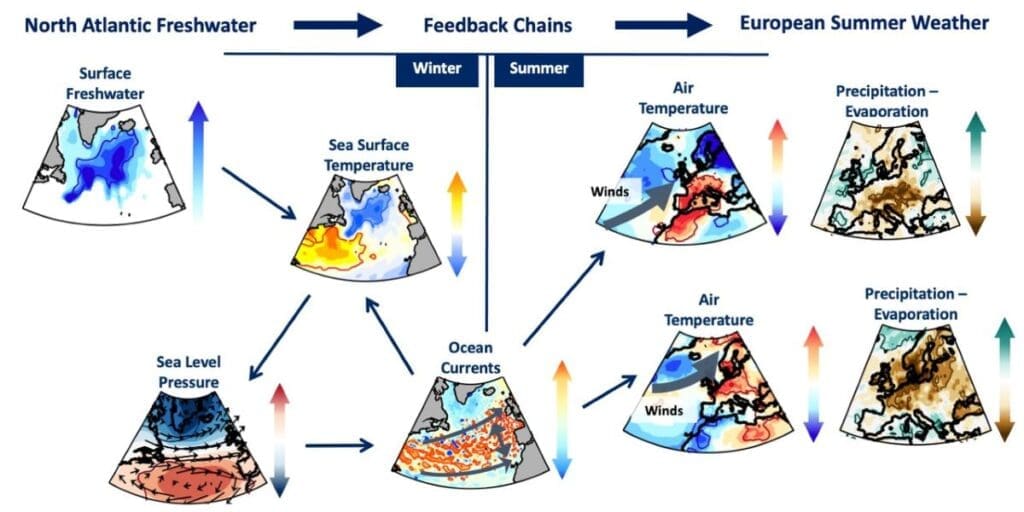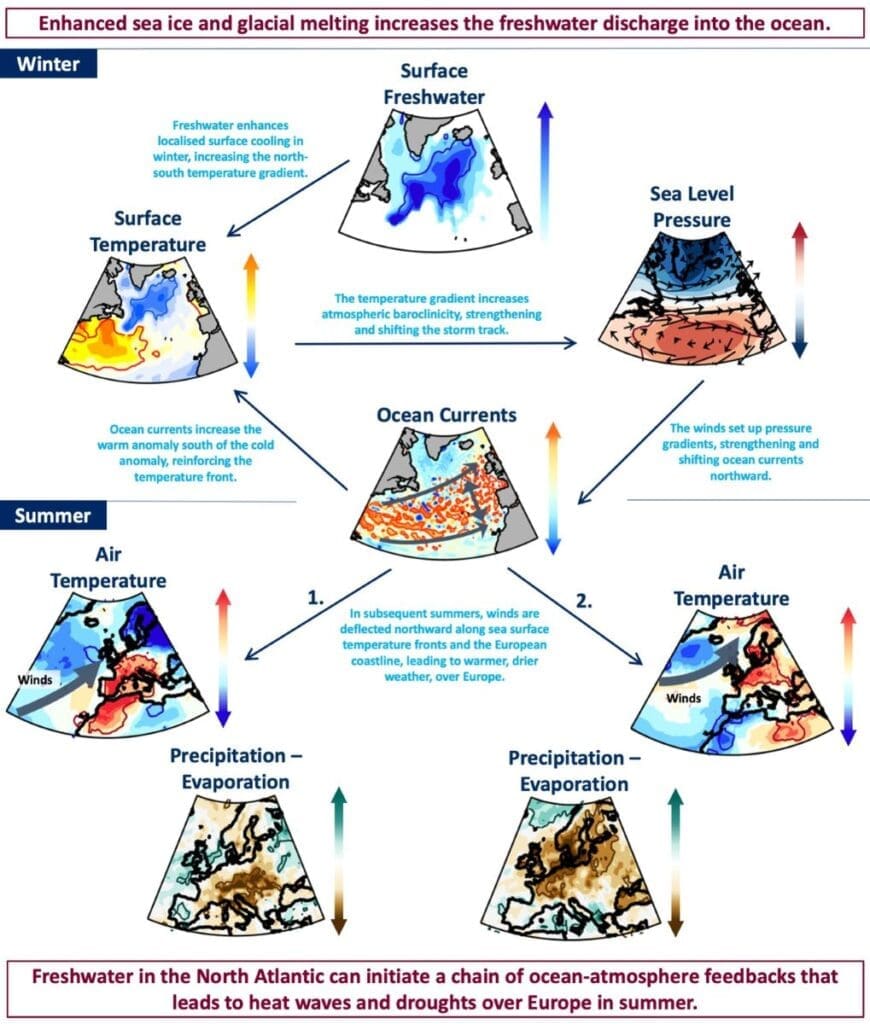In a new study published in the European Geosciences Union’s open-access journal Weather and Climate Dynamics, scientists from the National Oceanography Centre (NOC) have unveiled a significant connection between heightened meltwater in the North Atlantic and the onset of hotter, drier summers across Europe.
Lead author Marilena Oltmanns, a Research Scientist at the National Oceanography Centre, shed light on the research findings, highlighting the predictability of European summer weather months to years in advance due to elevated levels of freshwater in the North Atlantic.
Oltmanns emphasized the recent anomalies in weather patterns, citing the contrast between the unusually cool and wet conditions experienced in the UK and northern Europe during Summer 2023, juxtaposed with Greenland’s unexpectedly warm summer, which contributed to increased freshwater input into the North Atlantic. According to Oltmanns, this scenario is expected to set the stage for an exceptionally warm and dry summer over southern Europe in the coming year.
Moreover, the study forecasts a similar warm and dry summer phenomenon looming over northern Europe within the next five years, contingent upon the trajectory of freshwater flow in the North Atlantic. Oltmanns indicated that the precision of pinpointing the exact year for this occurrence would improve closer to winter preceding the event.
The research underscores the burgeoning influx of freshwater from melting sea ice and glaciers into the North Atlantic, disrupting conventional ocean circulation patterns and exerting a profound influence on global climate dynamics. As ice melt accelerates, the study warns of intensifying heatwaves and droughts across Europe in the foreseeable future. The additional warming effect over Europe following substantial freshwater releases in the North Atlantic is poised to exacerbate climate change-induced weather shifts.

In conclusion, Oltmanns underscored the critical role of ocean observations in refining climate models to accurately forecast weather phenomena. By enhancing predictive capabilities, these advancements empower industries and stakeholders to proactively plan for specific weather conditions, from adapting agricultural practices for greater resilience to anticipating fuel consumption and preparing for potential flooding events.

The findings of this study mark a significant stride toward refining climate models and bolstering preparedness measures against the evolving impacts of climate change on regional weather patterns.
About the European Geosciences Union (EGU):
The European Geosciences Union (EGU) stands as Europe’s foremost geosciences union, dedicated to advancing excellence in Earth, planetary, and space sciences for the betterment of humanity on a global scale. Established in 2002 as a non-profit interdisciplinary association of scientists, the EGU is headquartered in Munich, Germany. Through its array of scientific journals utilizing an innovative open-access format, as well as its organization of topical meetings, educational initiatives, and outreach activities, the EGU facilitates collaboration and knowledge dissemination among a diverse community of over 15,000 scientists worldwide. Covering a broad spectrum of topics, including volcanology, planetary exploration, climate, and energy, the EGU’s annual General Assembly stands as the premier European geosciences event, serving as a focal point for scientific exchange and innovation.
Journal Reference: Marilena Oltmanns et al, ‘European summer weather linked to North Atlantic freshwater anomalies in preceding years’, Weather and Climate Dynamics (2024). DOI: 10.5194/wcd-5-109-2024
Article Source:
Press Release/Material by European Geosciences Union (EGU)
Featured image credits: wirestock – Freepik.com)




